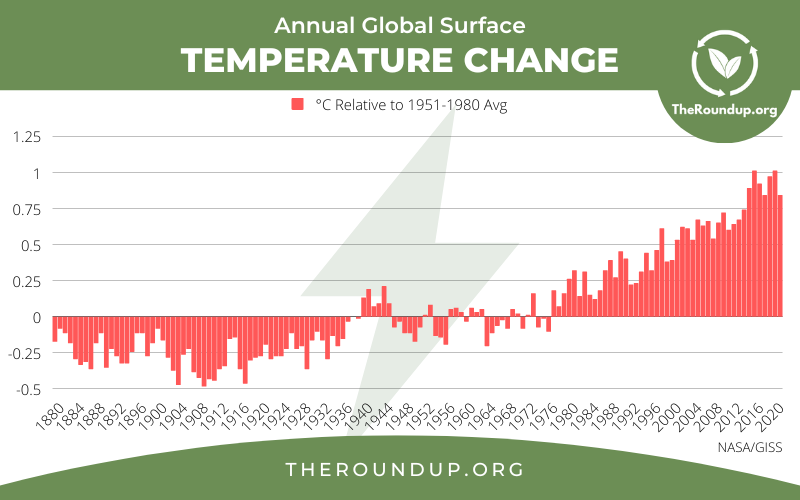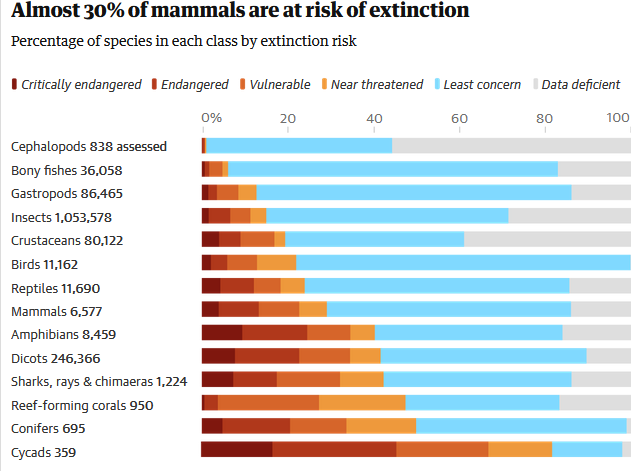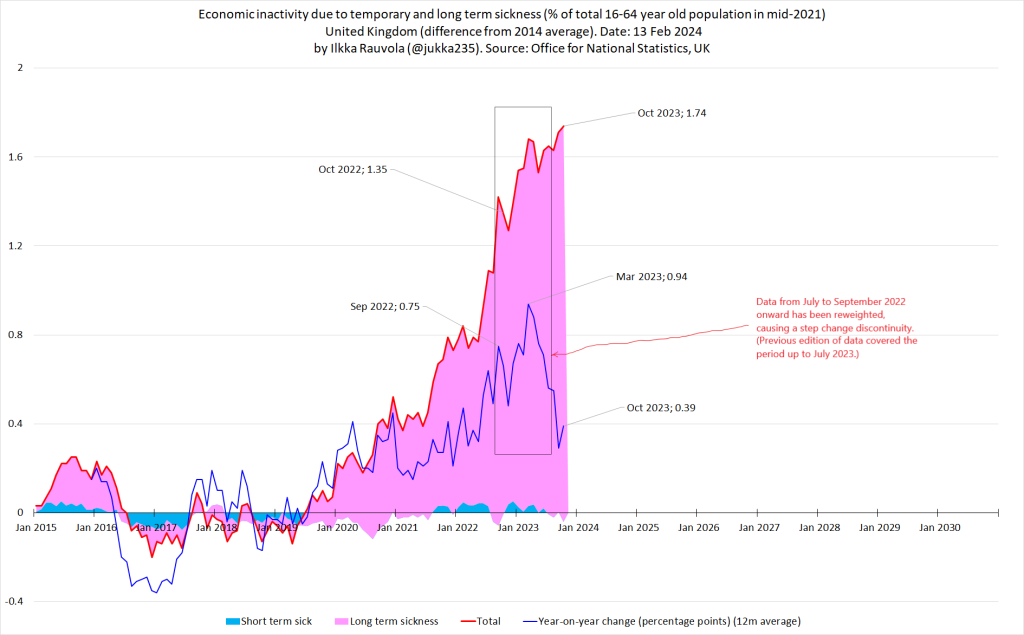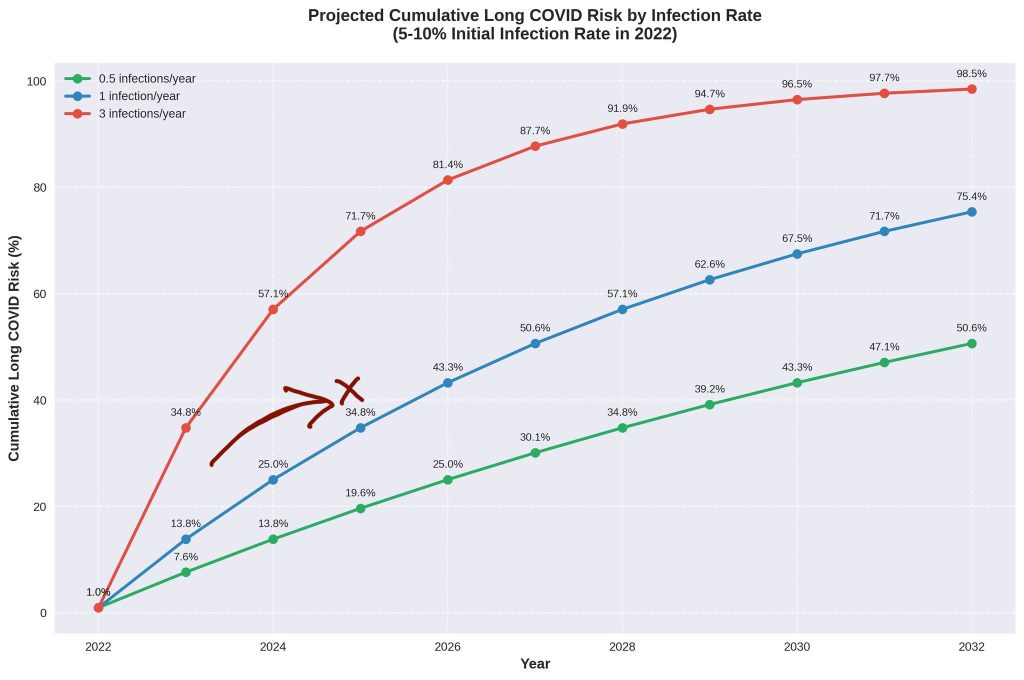There’s been a lot of attention, much of it apocalyptic, paid to Trump’s election, but Trump is just a symptom of one of our three main issues.
In order of importance, they are:
- Climate Change and Ecological Collapse;
- Mass disabling, largely due to Covid; and,
- The End of the Western Era, and the collapse of American hegemony.
If we manage a nuclear war during the collapse of American hegemony, it’ll turn out to have been the most important issue, but I’m betting we’ll avoid it. If I’m wrong, you won’t be able to tell me so.
Warming continues:

But just as important as warming is the collapse of biodiversity, loss of habitat and species. We are able to live and live well because other species form the network of life, which keep the atmosphere breathable, soil fertile and feed us. Worse, we just don’t understand these systems, we can’t create the simplest of biospheres: if it goes awry, we will have a hell of a time fixing it, and the loss of genetic diversity means a vast swathe of scientific advances will be cut off, especially medical advances.
(The below #s are from 2018, the situation is accelerating, and will be worse now.)

Average case scenarios for climate change and ecological collapse mean billions of deaths for humans a world with a significantly reduced carrying capacity. Recovery, especially of species, will take so much time that on the human timescale, it might as well be “never.”
Meanwhile, the Covid epidemic continues and we’re at risk for other viral plagues. If Covid just killed people, that would be bad, but the mass disabling is a huge problem and even people who aren’t symptomatic have suffered real damage.
This chart is from 2023, so it’s behind the curve, but it indicates the issues. (UK)

There’s no particular reason to expect this to end. We aren’t doing anything about Covid. Here’s a projection chart:

Having to care for large numbers of disabled people at the same time as everything else is going to shit is… bad. Very bad. There’s a reason why assisted suicide is becoming legal.
We could do something about Covid. Many things. But we refuse.
The End of the European Era is probably a good thing, but world hegemonic transitions are nasty. The last one led to two world wars. The Chinese are striving mightily to avoid “Thucydides trap.”
The Ukrainian and Gazan wars, plus the Yemen blockade which is part of the Gaza war are best seen as part of the death throes of the American empire. But it’s not just America which is losing power, Europe is shedding industry, has fallen behind on technology and is in serious, probably terminal decline.
The Western era, which is four to five centuries old, depending on how you count it (the case for 4 centuries is that in 1500 the Ottomans and Chinese were still vastly powerful) is coming to an end. China is re-taking its place as the most important nation in the world. I’d argue it has already done so. Russia, which has been Europe facing and European aspirational for centuries now looks East and is a junior ally of China’s.
China doesn’t want war with America. It doesn’t need a war. Absent a war, it’s already won, it just has to sit back and watch America continue its decline. Trump is not going to “make America great again”, that ship has sailed. What needs to be done to make it happen are policies (including real industrial policy and a collapse of asset prices and rent, plus increases in real wages) which are anathema to most of America’s elites, and which, in any case, they are incompetent to implement.
But hegemonic powers rarely go easy into that long night, and a world war is entirely possible. American elites don’t want to lose their pre-eminence, and they still have a powerful military (or think they do) and a lot of nuclear weapons.
So this transition period is one of great danger, potentially for everyone in the world.
These are the three big issues, everything else is trivial in comparison. Trans rights, wokeism, AI… whatever, are all rounding errors on these three issues.
***
(If you like the writing here, well, support it if you can. There aren’t a lot of places like this left on the Web. Every year I fundraise to keep it going. Please Subscribe or Donate.)
***
The worst of it is that we’re not going to handle the first one: climate change and ecological collapse. We’ve already made that decision. Even if we immediately started doing everything right, they’re now self-reinforcing, and we aren’t going to do everything right. Trump, after all, ran on drill, drill, drill. The Chinese are doing more than anyone else, with a massive build-out of renewable energy, but their system is still an extractive and polluting industrial economy with massive freeways and so on.
The only “good” sign is one that many are bewailing: collapsing birth rates. Human population is in clear overshoot, and it needs to be reduced. Yes, in theory we could increase Earth’s carrying capacity so that a massive population decrease wouldn’t be necessary, but we’re not going to.
Ecological issues are in the bucket of “fix them or nature will fix them for you” and we’ve chosen not to.
Keep these three issues at the forefront of your mind, your analysis and your planning for your personal future. Compared to them, everything else barely matters.





